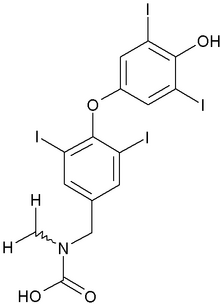A small, butterfly-shape gland lies just under the skin near your Adam's apple. It may be little, but the thyroid gland plays a big role in how the body functions.
"Thyroid hormone affects our energy, appetite, body weight, and body temperature," says Dr. Paul Ladenson, director of the division of endocrinology and metabolism at Johns Hopkins in Baltimore.
When the thyroid gets sluggish and produces less thyroid hormone, as it does with the condition known as hypothyroidism, all those areas are affected. You may feel exhausted. You may be excessively moody. You might be putting on pounds even though you're exercising. Your skin and hair may be dry as a bone.
"Often patients tell me they have brain fog," says Dr. Scott Isaacs, a clinical instructor of medicine at Emory University in Atlanta and coauthor of A Simple Guide to Thyroid Disorders from Diagnosis to Treatment. "They also have difficulty with short-term memory."
Because symptoms often develop gradually, you may have chalked up all these things to just getting older. Many people do: According to the American Association of Clinical Endocrinologists, about 13 million Americans have undiagnosed thyroid disease.
How can you tell if you're among those? A simple look at your blood with a TSH (thyroid-stimulating hormone) test can measure the level of thyroid hormone. Even if you feel fine, it's a good idea to be tested for low thyroid function at age 35, particularly if it runs in your family, says Dr. Alan Rubin, author of Thyroid for Dummies. If you have a parent with hypothyroidism, you have a fifty-fifty chance of developing it. After the age of 50, ask for a blood test every five to 10 years.
It's fairly easy to treat an underactive thyroid. Chances are, you'll be prescribed a synthetic hormone such as levothyroxine sodium (Synthroid is one brand). Most people have to stay on the drug permanently. "Treating hypothyroidism is more than just about feeling good," says Isaacs. "It's really about being healthier and living longer."
COPYRIGHT 2005 Meredith Corporation



